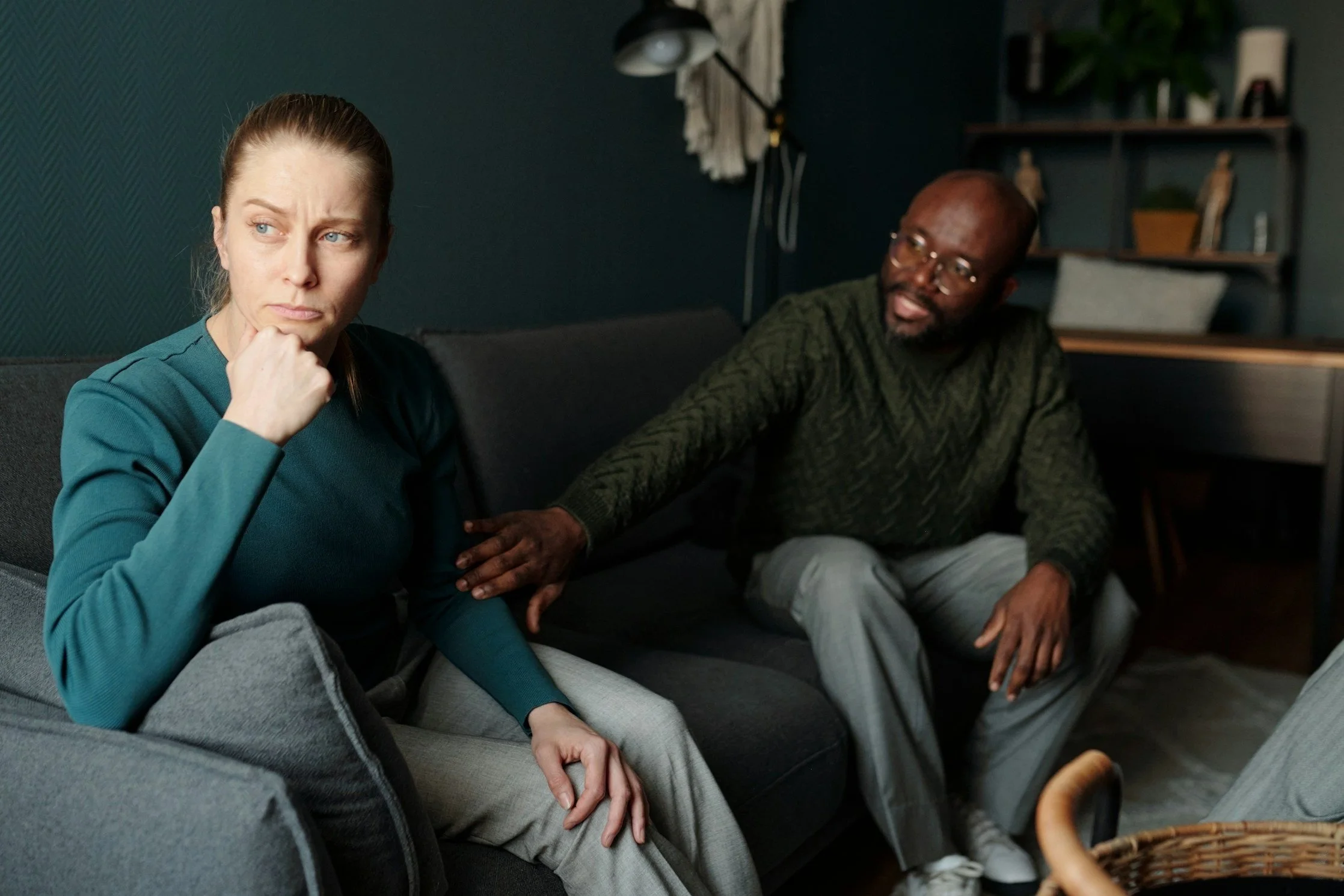When ADHD Hurts More Than Just You: How Relationship Trauma Happens—and How Therapy Can Help
You’re smart, caring, and deeply devoted to the people you love. And yet—your relationships often feel like a minefield.
You forget a friend’s birthday. You interrupt your partner mid-sentence. You get overwhelmed during a serious conversation and shut down. You didn’t mean to hurt anyone, but somehow you keep doing it—and the guilt eats at you.
This is a painful and all-too-common reality for women with ADHD. And over time, these moments don’t just cause tension. They can create something deeper: relational trauma.
In this post, we’re going to talk about how ADHD can impact relationships in ways that often go unrecognized—and how trauma-informed therapy can help you finally feel safe, connected, and understood in your relationships (starting with the one you have with yourself).
The Hidden Strain of ADHD in Relationships
ADHD isn’t just about attention—it’s about regulation: of thoughts, emotions, time, energy, and responses to stress. When your brain works differently, it can show up in your relationships in ways you don’t always realize until after the damage is done.
Some common patterns include:
Forgetfulness (missing important dates, not replying to messages, zoning out during conversations)
Emotional dysregulation (getting overwhelmed, snapping, crying, or shutting down when you didn’t mean to)
Rejection sensitivity (feeling crushed by even mild criticism, or spiraling after a fight)
Impulsivity (blurting something out or making decisions without thinking through the impact)
In close relationships, these moments can lead to painful misunderstandings. Your partner might feel unimportant. Friends might say you’re unreliable. A parent might accuse you of being selfish. But you’re not selfish—you’re overwhelmed.
And the worst part? You probably already know. ADHD often comes with a high level of self-awareness. You can see the patterns, but in the moment, it’s like watching a train wreck in slow motion—one you can’t stop.
When Conflict Becomes Trauma
Relational trauma doesn’t always come from abuse or neglect. Sometimes, it comes from chronic misattunement—the experience of being misunderstood, blamed, or emotionally unsafe over and over again.
If you have ADHD, you may have heard things like:
“You never listen.”
“Why are you so emotional?”
“What’s wrong with you?”
“You’re just being dramatic.”
“You don’t care about anyone but yourself.”
These messages, especially when repeated by people you love, start to sink in. Over time, you may begin to believe:
“I’m too much.”
“I’m not good enough.”
“I’m the problem in every relationship.”
That’s trauma.
It’s the nervous system response that kicks in when you feel emotionally unsafe. It’s the panic after sending a text and getting no reply. The shutdown during conflict. The fear that if someone really saw how your brain works, they’d leave.
You might start to mask—people-please, over-apologize, or try to keep everything under control. But masking is exhausting, and it only deepens the disconnect between who you are and who you think you have to be.
Why Traditional ADHD Support Often Misses This
When people think of ADHD treatment, they usually think of medication or productivity tools. And while those can absolutely help, they’re not always enough—especially if your nervous system is carrying unresolved trauma.
Here’s why:
Meds can regulate focus, but they don’t teach you how to heal after years of being misunderstood or shamed.
Productivity hacks may help your time management, but they won’t resolve the panic you feel every time you let someone down.
CBT can offer useful skills, but if it’s not trauma-informed, it can feel invalidating when you’re told to “challenge your thoughts” without anyone acknowledging the very real pain that created them.
If you’ve tried these tools and still feel stuck, it’s not because you’re doing something wrong. It’s because your brain and body need something deeper.
What Trauma-Informed ADHD Therapy Looks Like
Trauma-informed therapy recognizes that your symptoms don’t exist in a vacuum. They exist in the context of your relationships, your past experiences, your identity, and the nervous system that’s been working overtime to protect you.
In my work with women navigating ADHD and trauma, I focus on helping you feel safe in your own body first—because without safety, tools and strategies won’t stick.
Here’s what that can look like:
→ We name the shame that’s been driving your inner critic—and gently start to soften it.
→ We explore how your relationships have shaped your sense of self—and where you’ve had to mask or shrink to stay connected.
→ We build nervous system awareness, so you can recognize when you’re spiraling into fight, flight, or freeze—and learn how to soothe yourself without shutting down.
→ We work with the internal parts of you—the overachiever, the fixer, the avoider, the people-pleaser—and create space for all of them to be heard.
→ We might use EMDR, parts work, or somatic therapy to process the root wounds—not just the symptoms on the surface.
Trauma-informed ADHD therapy isn’t about “fixing” you. It’s about giving you tools that fit your brain, your story, and your emotional needs—so that healing feels possible.
What Healing Actually Feels Like
This work isn’t magic, but it can feel magical when things start to shift.
Some of the changes my clients notice include:
Being able to pause before reacting when a loved one gives feedback
Saying “I need a moment” instead of shutting down mid-conflict
Feeling less guilt about needing reminders or asking for accommodations
Building relationships where your ADHD isn’t a liability—it’s just part of who you are
No longer feeling like you have to earn love by being “easy” or “low-maintenance”
Feeling safe to be your full self—even if that self is passionate, intense, or a little messy
One of the most powerful parts of this work is the realization that the problem wasn’t your ADHD—it was the shame and trauma that grew around it.
When that weight starts to lift, everything changes.
You Don’t Have to Keep Holding This Alone
If you’ve spent years walking on eggshells in your relationships…
If you feel like your ADHD is constantly sabotaging your connections…
If you’ve been blamed, shamed, or misunderstood more times than you can count…
You’re not alone. And you’re not broken.
You deserve therapy that sees all of you—your neurodivergence, your emotions, your patterns, and your potential. In my trauma-informed therapy practice, I specialize in working with women who are carrying both ADHD and relationship wounds, and I’d be honored to support you in rewriting your story.
Looking for an ADHD therapist in Florida who can help you heal from relationship trauma?
Take your first step to feeling less triggered, more connected, and more like yourself.
(Florida residents only)
Do you feel isolated in your neurodivergent experience and long for a space where you don’t have to explain yourself?
My virtual group for AuDHD adults in their 20s and 30s is designed to help you unmask, heal, and belong.
About the author
Nicole Mendizabal is a Hispanic therapist based in Miami, providing online therapy throughout Florida. She specializes in helping women navigate trauma, ADHD, anxiety, autism, and the challenges of perfectionism. Nicole also offers EMDR therapy intensives, creating a focused and supportive space for deep healing and meaningful progress. Weekend and in-person sessions are available for Intensives only.



